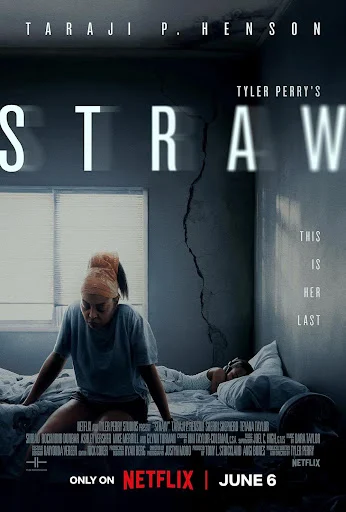Tyler Perry returns to the big screen with Straw, a deeply emotional and thought-provoking drama that quietly grips the heart and doesn’t let go. Set against the backdrop of rural Georgia, this film dives into the unspoken tensions that simmer within families, the fragility of human connection, and the silent strength it takes to carry generational pain without breaking.
The story centers around Naomi Ellis, a grieving schoolteacher whose quiet home begins to stir when her estranged son, Dante, reappears after six years of silence. The reunion is anything but sweet. Every conversation is layered with pain, regret, and the weight of words never spoken. As the film unfolds, the metaphor of the “straw” becomes a central theme :symbolizing not only the burdens we carry but also the final moments that force us to confront our truths.
Viola Davis delivers a raw and unforgettable performance as Naomi, capturing both the strength and sorrow of a mother torn between love and self-preservation. Kofi Siriboe gives a breakout performance as Dante, a young man wrestling with guilt, confusion, and the need for redemption. Their on-screen chemistry is electric and honest, portraying a relationship filled with both hope and hurt. Tyler Perry himself makes a subtle but impactful appearance as the family’s pastor, offering wisdom that’s more felt than spoken.
Visually, Straw is one of Perry’s most mature films. Gone are the overly dramatic twists and comic relief typical of his earlier works. Instead, this film offers long silences, powerful monologues, and quiet moments of reflection. The cinematography is soft, earthy, and grounded, perfectly matching the emotional weight of the story. Every scene feels intentional and emotionally charged, allowing the viewer to not just watch the story—but feel it.
What sets Straw apart is its unflinching honesty. The film doesn’t offer easy answers. It touches on difficult topics such as mental health, forgiveness, grief, and generational trauma within the Black community, but does so with grace and sensitivity. It’s a film that respects its audience’s intelligence, allowing us to sit in the discomfort and reflect on our own relationships.
If there’s any critique, it may be that the film’s slow pacing and subtle symbolism won’t appeal to everyone. Viewers expecting a typical Tyler Perry formula might find this film unusually quiet and emotionally heavy. But for those willing to lean in, Straw offers something deeply rewarding.
Straw is not just a film—it’s a quiet ministry. It doesn’t preach, but it teaches. It doesn’t shout, but it speaks. In a world overwhelmed by noise, Straw reminds us of the power of stillness, the importance of facing our past, and the possibility of healing through grace. It is, without question, one of Tyler Perry’s most powerful films to date.
Tags
# bestTylerPerryfilms
#Blackfamilystories
#Christianfilmreviews
#emotionaldramamovies
#faith-based films
#familyreconciliation
#Strawmoviereview
#TylerPerrymovies2025
#TylerPerryStraw







